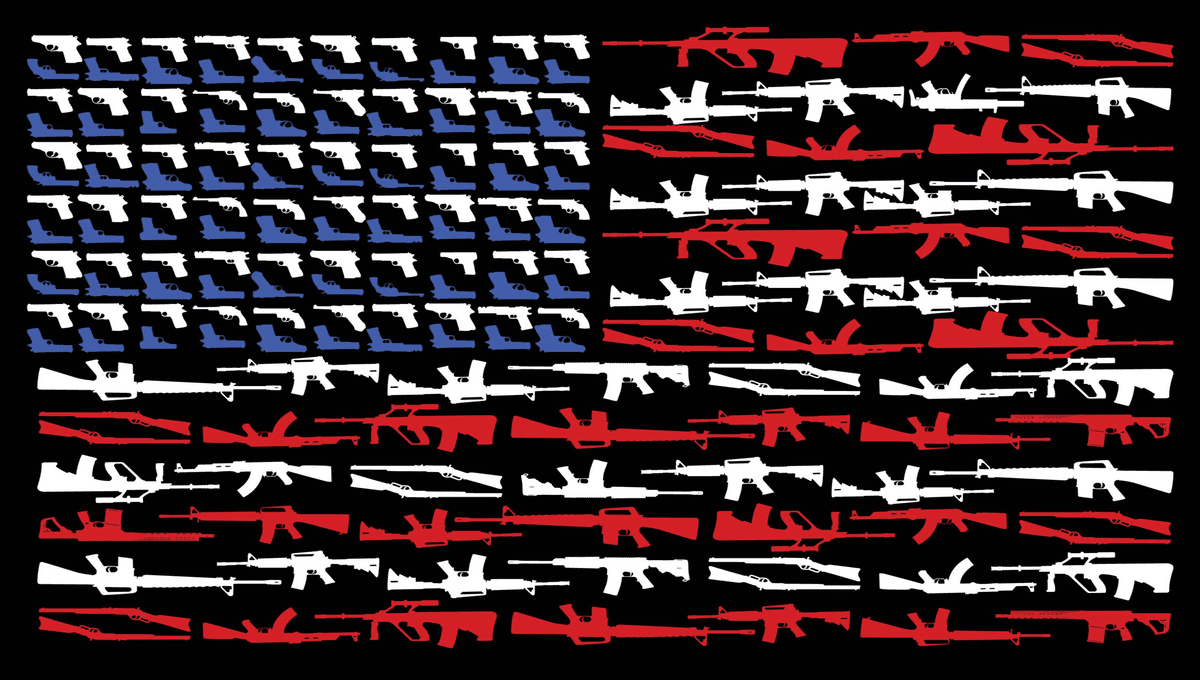
According to the most recent surveys, nearly one in every three Americans are gun owners. Out of those, around two-thirds cite “safety” or “protection” as their main motivation for doing so. Objectively speaking, this doesn’t make sense: Decades of studies have consistently found that living with guns in the home makes a person more likely, not less, to meet a violent end. So is there another reason for the US’s massively outsized gun ownership?
A new study, recently published in the journal PNAS Nexus, suggests the answer may be yes – and it’s a particularly grim one. “What we see is a strong correlation between the number of slaves in a county in 1860 and the number of guns there now,” explained Nick Buttrick, a professor of psychology at the University of Wisconsin–Madison, and lead author of the study.
That’s true “even after we control for variables like personal politics, crime rates, and education and income,” he said in a statement accompanying the paper. Neither is it explained by the “honor culture” of the South, the researchers found – and while gun ownership is indeed correlated with feeling “unsafe” in a neighborhood, it isn’t true everywhere, and it’s not the whole story.
“The extent to which people feel unsafe only predicts gun ownership in counties in the South, where the more unsafe people feel, the more likely they are to own a gun,” Buttrick said. “If you look in areas that didn’t have any slaves in the 1860s, whether people feel unsafe there today does not predict today’s county-level gun ownership.”
Evidently, there is something unique about the South, the researchers reasoned – and, for more than one reason, it’s intrinsically linked to the Civil War.
Even in slave states, guns were not primarily seen as being important for personal safety before the war – they were considered tools, mostly, for hunting or sports. But after the end of the Civil War, the white South underwent a massive existential crisis as local economies – previously reliant on free labor extracted from the enslaved Black population – were decimated, and Reconstruction saw the newly-free Black population begin to exercise their rights as citizens, even being elected to some of the highest levels in government.
It was a massive paradigm shift, and for the white ex-enslavers, not a welcome one. Meanwhile, the area was being flooded with an unprecedented number of firearms as ex-soldiers came home from the battlefields – according to one estimate highlighted by the researchers, the value of the privately owned firearms in 1880s Alabama was significantly greater than the value of all mechanical tools and farm equipment in the state.
In short, the post-Civil War South was a place where white people were newly armed, newly impoverished, and legally equal to the people they had only recently considered to be property. Add to that the massive wave of violent crime – almost entirely driven by white-on-white or white-on-Black murders – and the stage was set for white political leaders to denounce their new society as uniquely dangerous, and cry out for the “protection” of armed vigilante groups like the Ku Klux Klan.
“Southern leaders explicitly anchored the protection of the Southern way of life in the private ownership of firearms, arguing that they protected (white) Southerners from an illegitimate government uninterested or unwilling to keep them safe,” notes the paper. “Southern elites saw, in their guns, a means of protecting themselves and their interests from the social upheaval of Reconstruction, and they transmitted their beliefs to their Southern white brethren.”
At the same time, Black activists were promoting the same message for their own communities, frequently the target of lynchings and other violence. As the investigative journalist Ida B Wells wrote in her 1892 pamphlet Southern Horrors: Lynch Law In All Its Phases, “a Winchester rifle should have a place of honor in every Black home, and it should be used for that protection which the law refuses to give.”
Once the association between guns and safety established itself into the minds of Southerners, it was only a matter of time before it spread to the rest of the country, the authors suggest. “As people move, they bring with them the culture that formed them,” Buttrick explained. “We can see the remnants of those moves and the lingering connections to family and community in people’s social media connections, and it lines up with the slavery-gun-ownership pattern.”
With close to half the world’s civilian-owned guns and only one-twentieth of its population, it’s hard to overstate just how much of an outlier the US is when it comes to firearms. “Gun culture is one case where American Exceptionalism really is true,” Buttrick pointed out. “We are really radically different even from countries like Canada or Australia, places that have similar cultural roots.”
And with the number of days with mass shootings in 2022 so far outnumbering those without, it’s important to figure out why that is. This study is a step towards that goal – helping researchers follow the evolution of gun culture across the US, and figure out the driving forces behind the situation today.
“It helps to elucidate some things – why is it that race and guns are so tightly tied together? Why is it that guns are so present in the public mind and discussion for white people and not for Black people?” Buttrick said. “And it does help make sense of why protective gun ownership is such a popular idea in the United States, but not elsewhere.”
Source Link: The Grisly Reason Some Americans Might Think Guns Keep Them Safe